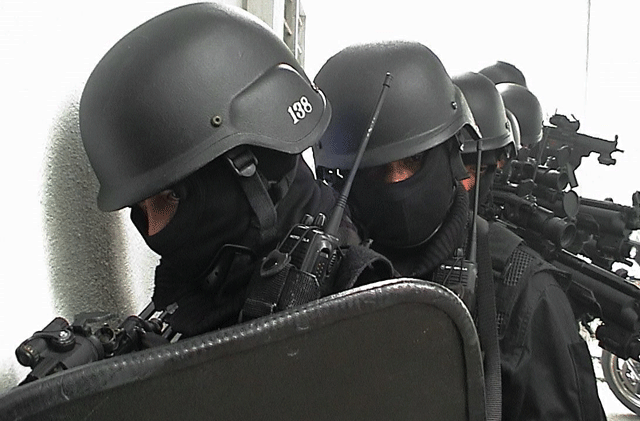Peshawar:
Khyber-Pakhtunkhwa has completed the ‘Provincial Action Plan’ to eliminate terrorism and improve law and order in the province.
A high -level meeting was held on Tuesday with Chief Minister KP Ali Amin Gandapur in the chairman. Senior officials, including CM’s adviser to Information Attorney Muhammad Ali Saif, chief secretary, IGP, additional chief secretaries, divisional commissioners and regional police officers attended the meeting.
The action plan is structured around seven key columns, including terrorism measures, political and social initiatives, legal reforms, good governance, general administrative measures, surveillance and public consciousness campaigns.
It outlines 84 specific actions across 18 thematic areas that assign responsibility to relevant provincial departments and federal agencies with defined timelines.
Key functions in the action plan include strengthening the state’s authority, restoring public confidence in the system through visible acts against terrorists, continuation of kinetic operations against terrorists, strict enforcement of the law on terrorism, improving the supply of public service and incorporating social input into security and development issues.
According to the action plan, a comprehensive database of terrorists and their facilitators will be established, regular updates to Schedule IV and strict monitoring of individuals on the list and monthly reviews of Bounty cases of sought -after terrorists will be performed. Strict disciplinary action will be taken against government employees who found the relief of the terrorists. Civil Administration is given a starring role in the fight against terrorism.
Fast-track capacity improvement by the police and the terrorist department (CTD), including new recruits, training and purchasing of modern weapons and equipment, is also part of the action plan. Priority projects for police infrastructure in southern and merged districts will be included in the annual development program.
Following the approval of reference conditions (TORS) of the federal government, a provincial delegation will cooperate with the Elderly for negotiations. The federal government is urged to improve diplomatic commitment with Afghanistan.
A centralized intelligence collection and sharing system will be developed with the integration of local intelligence databases with provincial and federal agencies. Regular meetings of the Apex Committee, the Management Committee and the Intelligence Coordination Committee at division and district levels are held.



